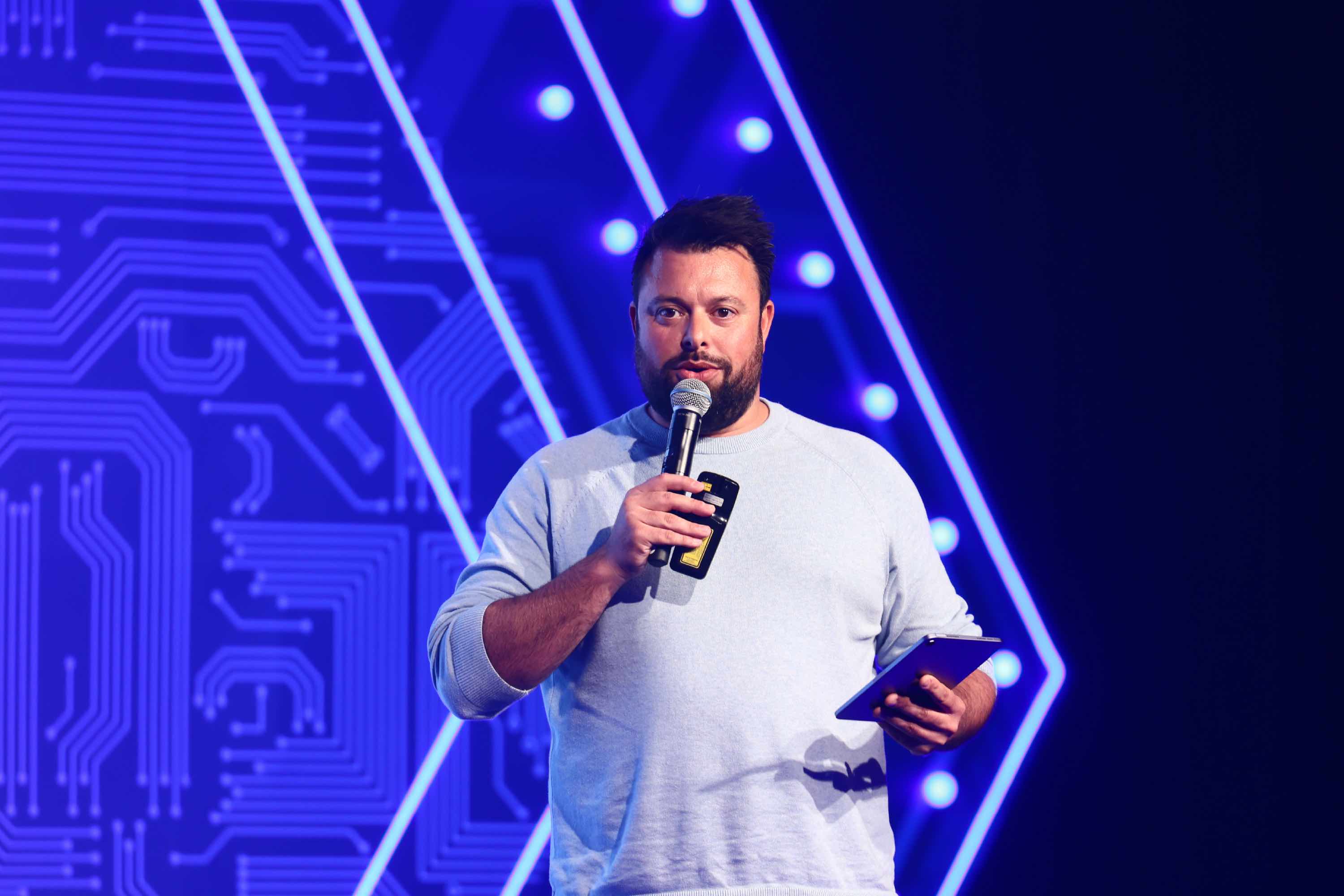Do you have a question? Want to learn more about our products and solutions, the latest career opportunities, or our events? We're here to help. Get in touch with us.
Do you have a question? Want to learn more about our products and solutions, the latest career opportunities, or our events? We're here to help. Get in touch with us.
We've received your message. One of our experts will be in touch with you soon.

Sydney-based technology firm Holon is a leading Web 3.0 provider of data custody and storage services, underpinned by the Filecoin decentralised storage network.
Right now the Holon team is preparing for a future where data storage requirements continue to grow exponentially. From the internet of things to genomic medicine to AI, advancing technologies are generating increasing amounts of data – and it all adds up.
It’s predicted that a whopping 4.6 exabytes will be required, for example, to record Australians’ genomics data for the purposes of genomic medicine, which uses an individual’s genetic information to personalise their healthcare.
Web 3.0 is reimagining how data is stored and distributed and Holon aims to be one of the largest storage providers on the Filecoin network in Asia Pacific. Its clients already include NASA, The U.S. National Institutes of Health and other large education institutions, which not only generate large amounts of data but also require robust and verifiable solutions to ensure their data remains secure and uncompromised.
With such large amounts of data coming online, it's important that this doesn't come at the expense of the environment. Filecoin green is an initiative developed by the Filecoin community that aims to measure the environmental impacts of Filecoin and verifiably drive them below zero, building infrastructure along the way that allows anyone to make transparent and substantive environmental claims.
Holon is also ensuring that the infrastructure it uses to run its network generates as small as carbon footprint as possible.
Holon began deploying storage capacity on the Filecoin network last October, when it installed 12 racks of equipment, including Seagate storage infrastructure, at Datacom’s colocation suite at the AirTrunk Sydney data centre.
It’s now about to install another five racks of equipment at Datacom’s Kapua data centre in Hamilton, New Zealand, which will be 100% powered by renewable hydro and solar generated energy.
Holon has ambitious ESG (environment, social, governance) goals for 2023, including extending its sustainability framework to scope 2 emissions, and in the future, scope 3 emissions, across its entire supply chain.
Holon is able to access Datacom’s high-capacity, resilient data centre infrastructure while accelerating its sustainability journey.
“After assessing our options it’s clear to see Kapua was the best data centre in ANZ with the greenest credentials,” says Holon's Jonathan Hooker.
“Our customers want their data storage to be robust, verifiable and sustainable; being able to offer them a storage system that is 100% green is amazing.”

Data Centres Associate Director Andrew Green says the Datacom team is really proud of its sustainability efforts, and in particular the long-term approach being taken to energy procurement.
“Our new ten-year energy contract allows us to offer rates that are significantly lower than the market. Our procurement process also focused on sustainability, and we have selected a supplier who is not only a 100% renewable generator, but also provides us with 100% certified renewable energy,” says Andrew.
“In addition to that, we always have sustainability projects on the go, including reducing energy use by cooling our facilities with outdoor air, initiating the deployment of solar on our rooftops, replacing our batteries with new Lithium technology, right down to switching out our lightbulbs.”
As a startup working in a nascent area of technology, Holon has also benefited more broadly from working with Datacom.
For example, Datacom helped fund a hackathon held by Holon last November, where RMIT students built usable applications based on Web 3.0 technologies in the space of a week. Projects included creating a verified record of education credentials (to help combat fraudulent job applicants) and a decentralised type of ‘Dropbox’.
“There’s a thirst among the younger generation to learn about these technologies, and we want to support that and see this transition happen, but we’re working at the bleeding edge and it's hard work,” says Jonathan.
“Datacom has gone over and above, pulling data and expertise from its different departments just to help us out on our journey. Their attitude is very much ‘can do’ and the relationship has been invaluable for our business.”
Andrew says his team has really enjoyed partnering with Holon to get them the best possible outcome for their business.
“We don’t consider our approach as going ‘over and above’, we think it is a fundamental part of being a trusted partner. It’s been great to work through all the options with Jonathan openly and transparently, before settling on the right solution.”
Jonathan describes the advent of Web 3.0 as a revolution that will fundamentally change how data is stored and exchanged over the internet.
“Web 3.0, focuses on decentralised and distributed systems, like blockchain, that facilitates management and ownership of unique assets over the internet. Those assets can be money, such as cryptocurrencies, images, as we’re seeing with NFTs, or data,” he explains.
Holon is playing its part in that revolution by building Web 3.0 data storage capacity and deploying it on the Filecoin network in Asia-Pacific. The potential of these types of distributed networks to scale well beyond incumbent data storage solutions, says Jonathan, will help meet burgeoning global data storage needs.
With Datacom’s ability to deliver data centre infrastructure 100% powered by renewable energy, the future looks bright for Holon and Web 3.0’s development across Australia and New Zealand.